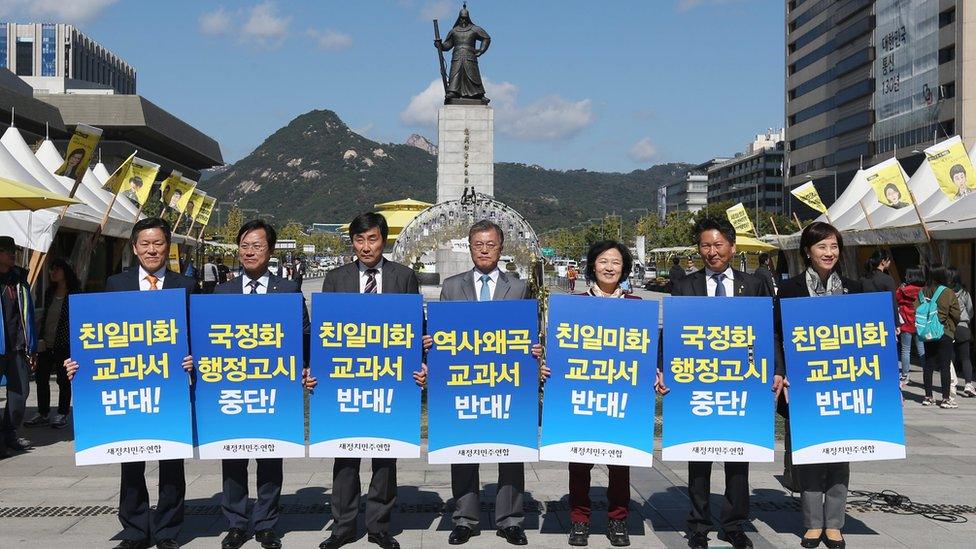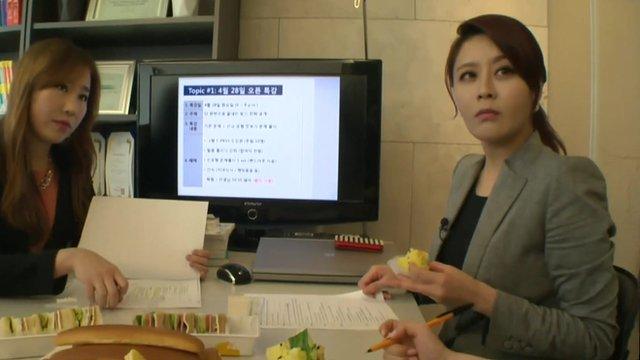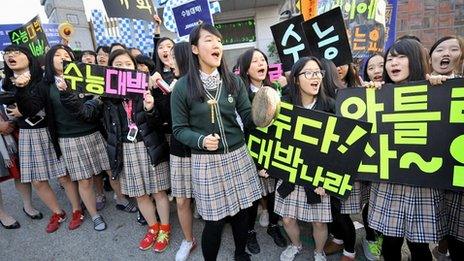South Korea to control history textbooks used in schools
- Published

Opposition politicians have protested against the plans. The placards read: "Objection to history textbooks that distort history"
South Korea's government has announced controversial plans to control the history textbooks used in secondary schools.
Currently, secondary schools can choose from textbooks published by eight different publishing companies.
However, the government says that from 2017, all secondary schools must only use history textbooks issued by the state.
The move has sparked fierce criticism from academics and opposition parties.
The government has argued that current history textbooks are too left-leaning and encourage anti-American and pro-North Korea feelings, the BBC's Kevin Kim in Seoul reports.
'Distorting history'
The new textbook, which will be called The Correct Textbook of History, will be written by a government-appointed panel of history teachers and academics.
Opposition politicians and some academics have protested against the move, accusing the government of "distorting history".
A student group also held a rally on Saturday, telling the Korea Times: "Such a textbook will allow the government to interfere with the interpretation and teaching of history... This infringes on the independence and political neutrality of education guaranteed by the Constitution."
Hwang Woo-yea, chairman of the ruling Saenuri Party, said in September that the government-issued textbooks would be "neutral" and that the change was necessary because "students and their parents are discontented with the current textbooks", Yonhap news agency reported.
History is a frequently contested issue in East Asia - often fuelling territorial disputes and diplomatic rifts in the region, including in China and Japan, our correspondent says.
- Published22 May 2015

- Published2 December 2013
